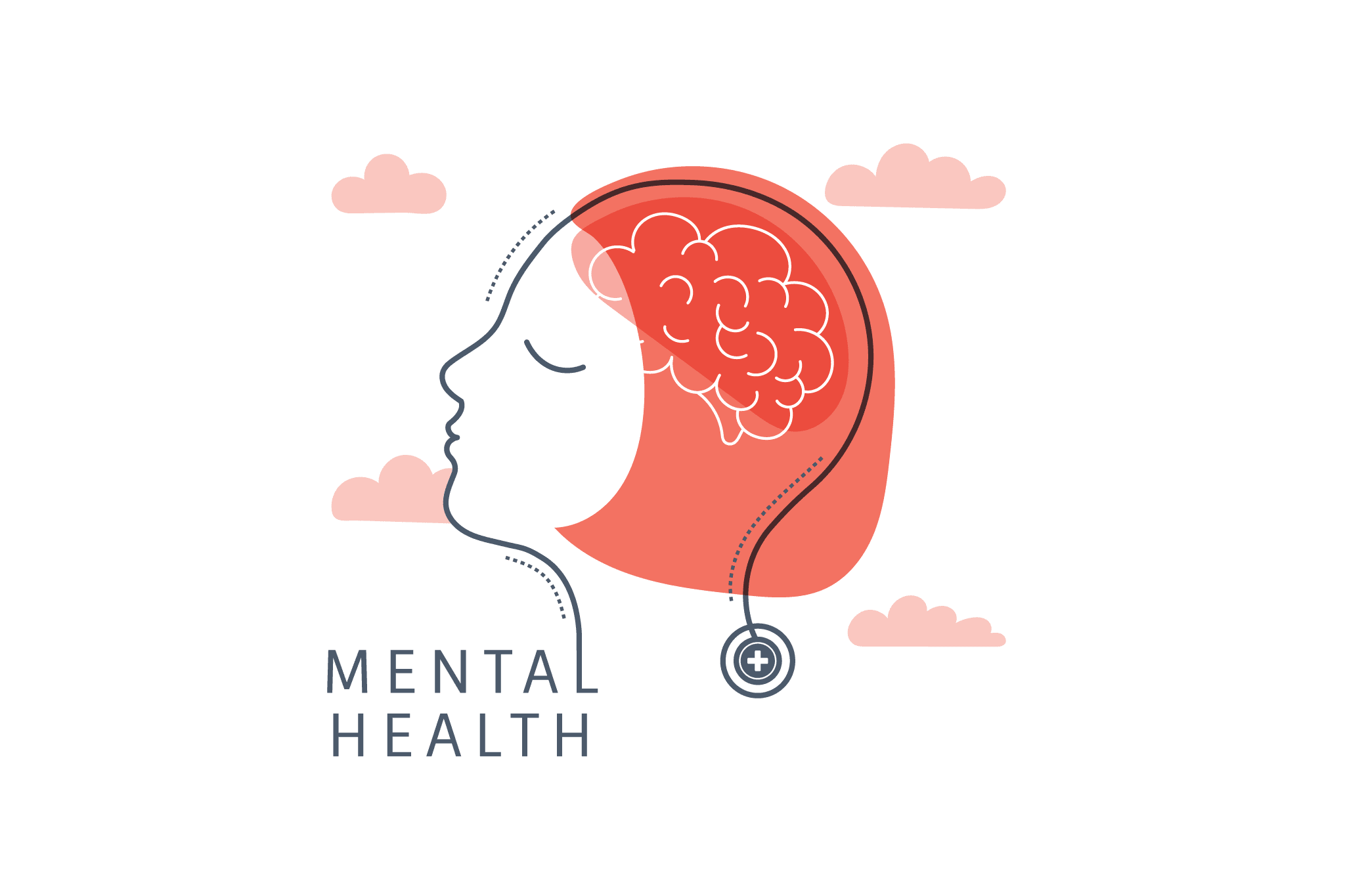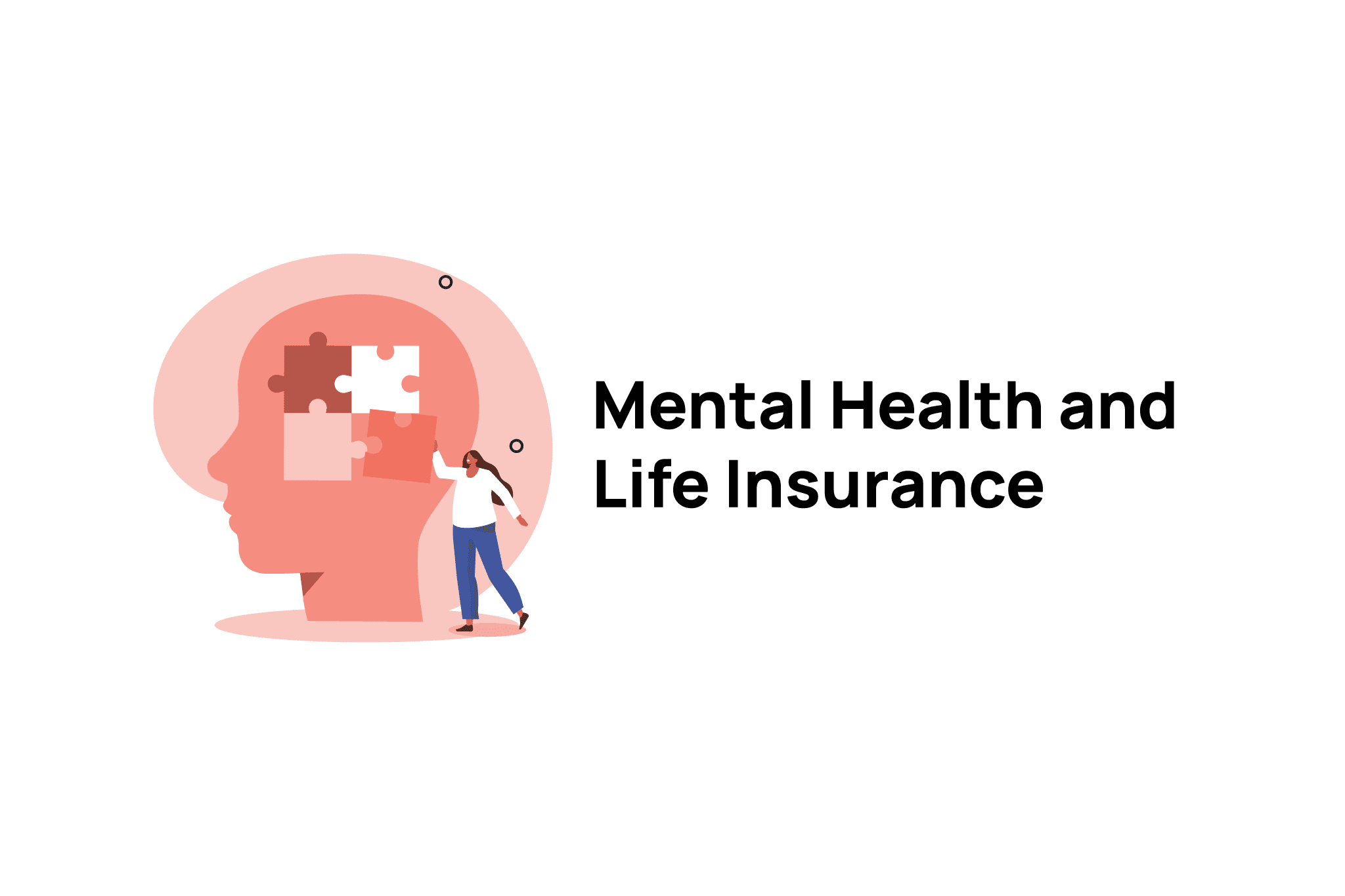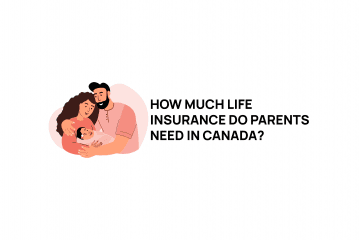One of the most fantastic things that has happened in recent years (in my opinion) is that the stigma of admitting you need help with your mental health has decreased significantly. We have seen real progress in understanding how mental health affects every aspect of a person’s daily life and reaching out for support when you are having a difficult time is not a sign of weakness but is something to be lauded. Historically people have not just tried to suffer through other illnesses without seeking professional help. You wouldn’t break a bone or tear a ligament and not seek out a physician. The same thought process should be applied to your mental health, if you are experiencing issues with it you should seek out professional help. That’s the way you improve things. With the increased awareness of people’s personal mental health though we often get the question ‘Does my mental health play a role in my ability to get life insurance?’ Let’s take a dive into this topic and see what the answer is.
In This Article:
- Does Mental Health Affect Life Insurance?
- What type of Mental Illnesses will Insurers Consider?
- An Important Note About Applying for Life Insurance
- Remember that you have options
- Conclusion
Does Mental Health Affect Life Insurance?
Yes it does. Simple answer and now the article is done right?
Not Quite.
As is always the case, there isn’t a simple answer to a complicated question. Mental health runs the gamut from issues considered ‘minor’ to severe problems. Someone who has experienced a change in their personal life like the unexpected loss of a loved one or a difficult divorce as examples may seek out a professional to discuss strategies for coping with grief and the changes that they are facing in their life. When you get asked if you have ever sought out treatment from a mental health professional on an insurance application and you are in one of these situations you need to answer yes. Is this type of treatment likely to influence your ability to get insurance? For these types of problems that is unlikely. You need to remember though. Life insurance companies ask questions during underwriting about pre-existing conditions and if you have a mental health disorder that qualifies as pre-existing in their books. There will be follow up questions that will arise. You may be asked things like:
- How long have you been experiencing the issue?
- Is there a clinical diagnosis?
- What type of Symptoms do you experience?
- Do you take medications?
- Have you been hospitalized as a result?
- How often do you experience symptoms?
It is this further drilling down that allows the insurer to collect the information that they need to render their decision. That decision can range from accepting the policy at standard rates, asking for extra premium due to increased risk or outright declining to issue the coverage. As is the case with all pre-existing conditions. If you can demonstrate that the condition has been recognized, treated and there’s a track record of stability in your treatment plan the risk of being outright declined for coverage decreases.

What type of Mental Illnesses will Insurers Consider?
If you have been diagnosed with a mental illness it doesn’t mean that you can’t get insurance. Just like physical illnesses, there are varying degrees of severity with mental illness that play a role in the decision an insurer makes as to whether or not to insure you. If you are experiencing what would be considered mild to moderate symptoms an outright decline of coverage is really unlikely. With more severe symptoms the insurers tend to add underwriting layers such as a complete medical history from your physician prior to rendering their final decision. The list of conditions that you can have that does not preclude you from getting life insurance will include things like:
- Depression
- Anxiety
- Attention Deficit Hyperactivity Disorder (ADHD)
- Posttraumatic Stress Disorder (PTSD)
- Bipolar Disorder
This is by no means a complete list but it does show that just having a diagnosis of a mental illness doesn’t automatically close the door to getting life insurance. You just need to expect more thorough underwriting on your application.
Get a free quote
An Important Note About Applying for Life Insurance
You must remember one key thing when you are applying for life insurance. This is that if you have a mental illness as part of your medical history it is essential that you disclose it on the application for your coverage. I have seen this happen. Someone feels like it’s ‘not a big deal’ or it’s ‘been under control for a long time’ so they feel like they don’t need to disclose it to the insurer. They feel like it is unfair that the decision on their coverage could be affected by something that is ‘old news’ or ‘controlled’ in their opinion. This could not be further from the truth. Not disclosing something you are aware of constitutes fraud on the application and can result in issues in the future where you will wish you had disclosed your health situation fully. If the insurer finds out about an application where they were intentionally misled they are able to cancel the policy based on this action. The worst case scenario here is that the insurer finds out about the pre-existing mental health issue after you have passed away and refuses to pay the death benefit. It is never a good idea to omit any details about your health, both mental or physical, that you are aware of when you are applying for life insurance.
Remember that you have options
After that discussion on why you should never fail to disclose information you know to an insurer you may wonder, what happens if you don’t want to disclose what is going on? You may also face a situation where you have been declined for life insurance via standard routes and still want to get the coverage in place to protect your family or business. The option that you have in either of these situations would be to look at purchasing a policy that has either guaranteed or simplified issue coverage. These are policies that particular carriers will issue where:
Guaranteed Issue: Has no medical questions at all. Designed to get coverage for people who are hard to insure so premiums are higher and coverage maximums will be lower.
Simplified Issue: no medical exams are required but you will have to answer health questions. These are designed to cover applicants who have less severe health issues than guaranteed issue policies. The premiums will again be slightly higher than traditional policies.
These two types of coverage will offer you insurance protection in one form or another. For more severe cases you may need to accept the guaranteed route initially with the plan being to reapply in the future for better rates if your condition improves.

Conclusion
As I mentioned at the beginning of this post, the fact that people are identifying and seeking help for mental health issues more now than ever in the past is a remarkable evolution in the way society thinks about overall health. While the answer to my initial question of ‘does mental health affect my ability to get insurance?’ remains as a simple yes, you can see that what it doesn’t do is prevent you entirely from getting coverage. Many of the top insurers in Canada provide lots of options for coverage for individuals who are dealing with mental health struggles. Working with a broker who has access to a variety of insurers can help to make sure that you land in the best style of policy for your individual situation. We can also guide you through the application process to make sure that you receive a decision from insurers that is fast and understandable for you. James Duncan is a Life Insurance Advisor at Life Insurance Canada.com. He can be reached at 877-344-4011.




